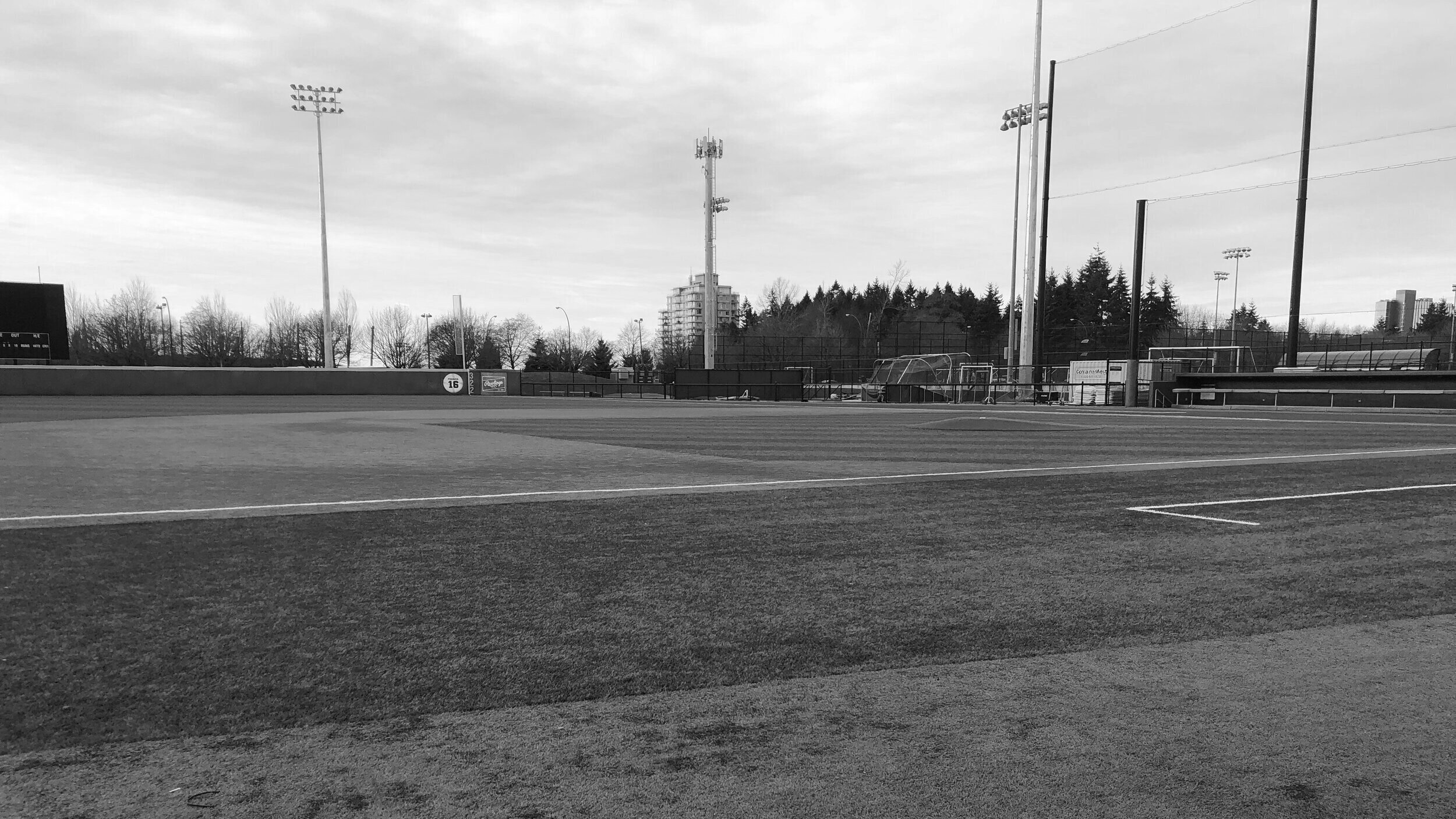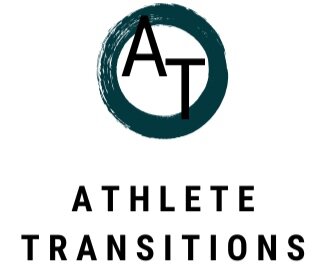
Navigating the Transition
Making the Transition
I remember talking to a baseball player a few years into his retirement. He was recounting what the beginning of his own retirement was like; for him the reality of his retirement didn't set in until his teammates all started going back to training camp. He was working on the university campus and his office was close enough that he could see the team on the field prepping for the season, he could smell the freshly cut grass, hear the sounds of the bat hitting the ball and the players laughing as they came together. All of his senses were alerted triggering the emotions of not going back.
For each of us, we will experience the end of our career differently. For some the emotions of the end don't come until the next season is starting. For others, like myself, those emotions hit immediately like a tidal wave. My career ended suddenly, we were mid-season and arrived at the rink for practice only to find out that the team was bankrupt and our season was over. In a matter of minutes, I went from being an athlete to not being an athlete, I lost my whole identity. I was not at all prepared for this sudden end and the grief of this loss sent me into depression. It was not until I saw a counsellor that I was fully able to understand that I was grieving the loss of an identity that I had held strongly since my early childhood. For the majority of my life I was a hockey player, that is how I was seen by those around me, how I saw myself, and how I lived my entire life.
Due to the highly scheduled nature of being a high performance or professional athlete and the dedication required to compete at this level, it is not uncommon for athletics to become the primary focus of one’s life. We often schedule our daily lives around the need to train and perform. Our diets are scheduled and restricted in order to help up properly fuel. Our sleep schedules are set based on our performance schedule. Even our social lives are often made up of our teammates, coaches, and competitors due to the amount of time spent together (Cecić Erpič, Wylleman, & Zupančič, 2004; Warehime, Dinkel, Bjornsen-Ramig, & Blount, 2017). As we transition into life after sport it is common that we need to develop new social networks, return to or discover hobbies and interests outside of sport, and learn to set out our own schedules for eating, sleeping, and training (Kerr & Dayshyn, 2000; Warehime et al., 2017). If we have developed a strong or exclusive athletic identity during our sporting career, it is also likely that we will need to work to develop the other aspects of our identity that have taken a backseat to the role of the athlete (Cecić Erpič et al., 2004; Giannone, Haney, Kealy, & Ogrodniczuk, 2017; Martin, Fogarty, & Albion, 2014).
For many of us, as we transition into retirement, the loss of identity can also trigger feelings of reduced satisfaction in life and a lower sense of self-esteem and self-worth (Lally, 2007). These feelings can be particularly strong if our career has ended due to reduced performance, injury, or an inability to compete at the level needed (Beamon, 2012; Cecić Erpič et al., 2004; Kerr & Dacyshyn, 2000; Martin et al., 2014). As we work through this difficult time, research demonstrates that engaging in activities that help develop our mental skills can help improve our feeling about ourselves and where we currently are in our lives (Chen, Wu, & Chang, 2016; Gabana, Steinfeldt, Wong, Chung, & Svetina, 2018).
By broadening our sense of self through hobbies, physical fitness, and social interaction we as athletes are able to expand our identity beyond that of just being an athlete. This also enables us to expand our social networks beyond those directly connected to our sporting career. In expanding our social networks and developing different aspects of our identity we are able to build a support system that aids in navigating our transition into post-sport life and increases our level of life satisfaction (Brown, Webb, Robinson, & Cotgreave, 2018; Warehime et al., 2017).
As athletes we develop a number of skills throughout our careers. Many of these skills are highly valuable in the occupational and educational fields. As we move into our lives after sport, learning to acknowledge and utilize these skills allows us to transfer them to our work and education, helping us to improve our self-esteem and sense of self-worth (Brown et al., 2018; Torregrosa, Ramis, Pallarés, Azócar, & Selva, 2015).
Having a strong social support network has been shown to be instrumental in helping athletes navigate the transition into post-sport life. The problem is that not everyone can understand the life demands, and experiences of a high-performance athlete. Alumni networks and mentors can be integral to helping us through the transition as they can empathize and share their own experiences (Brown et al., 2018).
References:
Brown, C. J., Webb, T. L., Robinson, M. A., & Cotgreave, R. (2018). Athletes experiences of social support during their transition out of elite sport: An interpretive phenomenological analysis. Psychology of Sport and Exercise,36, 71-80. doi:10.1016/j.psychsport.2018.01.003
Chen, L. H., Wu, C.-H., & Chang, J.-H. (2016). Gratitude and athletes’ life satisfaction: The moderating role of mindfulness. Journal of Happiness Studies, 18(4), 1147–1159. doi: 10.1007/s10902-016-9764-7
Erpič, S. C., Wylleman, P., & Zupančič, M. (2004). The effect of athletic and non-athletic factors on the sports career termination process. Psychology of Sport and Exercise,5(1), 45-59. doi:10.1016/s1469-0292(02)00046-8
Gabana, N. T., Steinfeldt, J., Wong, Y. J., Chung, Y. B., & Svetina, D. (2018). Attitude of gratitude: Exploring the implementation of a gratitude intervention with college athletes. Journal of Applied Sport Psychology, 31(3), 273–284. doi: 10.1080/10413200.2018.1498956
Giannone, Z. A., Haney, C. J., Kealy, D., & Ogrodniczuk, J. S. (2017). Athletic identity and psychiatric symptoms following retirement from varsity sports. International Journal of Social Psychiatry, 63(7), 598–601. https://doi.org/10.1177/0020764017724184
Kerr, G., & Dacyshyn, A. (2000). The retirement experiences of elite, female gymnasts. Journal of Applied Sport Psychology,12, 115-133. doi:10.1080/10413200008404218
Martin, L. A., Fogarty, G. J., & Albion, M. J. (2013). Changes in athletic identity and life satisfaction of elite athletes as a function of retirement status. Journal of Applied Sport Psychology,26(1), 96-110. doi:10.1080/10413200.2013.798371
Torregrosa, M., Ramis, Y., Pallarés, S., Azócar, F., & Selva, C. (2015). Olympic athletes back to retirement: A qualitative longitudinal study. Psychology of Sport and Exercise,21, 50-56. doi:10.1016/j.psychsport.2015.03.003
Warehime, S., Dinkel, D., Bjornsen-Ramig, A., & Blount, A. (2017). A qualitative exploration of former college student-athletes’ wellness. Physical Culture and Sport Studies and Research,75(1), 23-34. doi:10.1515/pcssr-2017-0018





